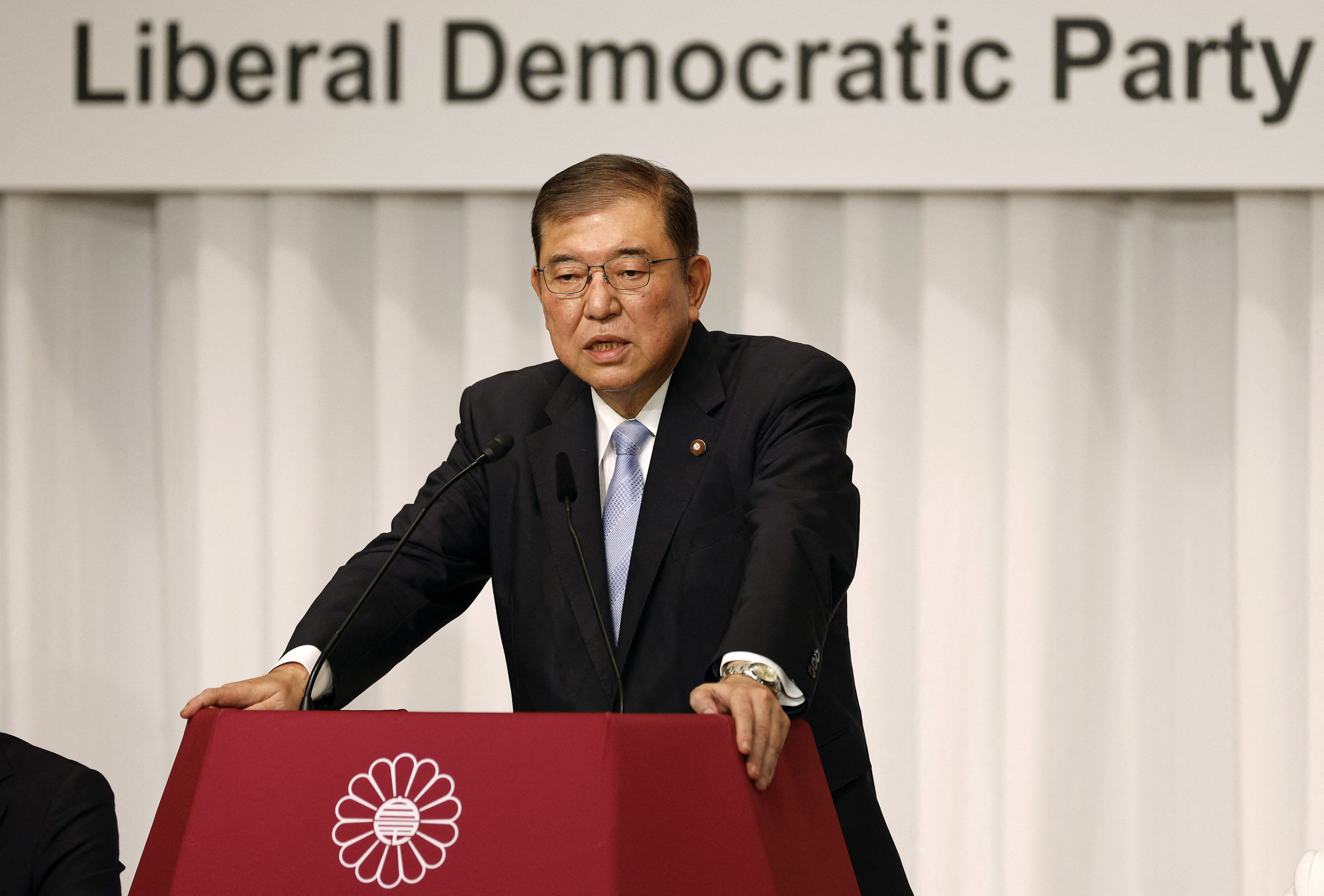
‘Asian NATO’ idea from new Japanese PM Ishiba is a test for US policy
Shigeru Ishiba has been chosen to be Japan’s next prime minister. He has plans to change Tokyo’s closest relationship by making the U.S. a part of a “Asian NATO” and stationing Japanese troops in the U.S. This could cause diplomatic problems for the U.S.
Ishiba was chosen leader of the Liberal Democratic Party on Friday. Last week, he wrote a paper for the Hudson Institute think tank outlining his plans. He says the changes will make China less likely to use armed force in Asia.
“The absence of a collective self-defense system like NATO in Asia means that wars are likely to break out because there is no obligation for mutual defense,” he said. Not only Ishiba but also many other Japanese politicians are worried about the rise in Chinese military action near Japanese islands.
But Washington has already turned down the NATO idea. Daniel Kritenbrink, who is the assistant secretary of state for East Asia and the Pacific, called it too rushed.
“He knows a lot about the military, but he hasn’t shown much skill in national security diplomacy,” said Joseph Kraft, a financial political expert at Rorschach Advisory in Tokyo.
Ishiba, on the other hand, stuck to his plan even more on Friday, telling reporters that “the relative decline of U.S. might” meant that Asia needed a treaty group.
Japan has been close to the United States since it lost World War II. The United States protects Japan with its nuclear weapons and has an aircraft carrier, fighter jets, and about 50,000 troops stationed in Japan.
As the U.S. pushes for closer ties, Tokyo seeks defense cooperation with South Korea and Australia and security ties with European countries like Britain and France to counter China’s growing power. Ishiba’s changes could cause problems.
Ishiba’s NATO would bring together a number of current security and diplomatic agreements. These would include the Quad grouping, which is made up of Japan, the U.S., Australia, and India; the AUKUS agreement between Canberra, Washington, and London; and Japan’s growing security cooperation with its neighbor and rival Seoul.
He said that the new security alliance might even share control of Washington’s nuclear weapons as a way to keep Japan’s nuclear-armed neighbors from attacking.
Ishiba said in his campaign before Friday’s vote that he wanted to adjust Japan’s relationship with the U.S. by giving Japanese people more control over U.S. military bases in Japan, which is often a source of disagreement with Japanese people.
It is known that Ishiba can cause trouble in the LDP. In his Hudson paper, he also said that Japan’s military partnership with the U.S. could be changed so that Tokyo could put troops on Guam, which is U.S. territory, for the first time since 1944.
A partner at The Asia Group Japan named Rintaro Nishimura said, “I think that’s not going to happen.” “It looks like he’s trying to kind of fundamentally change the relationship, but not in a completely negative way.”
All Categories
Recent Posts
Tags
+13162306000
zoneyetu@yahoo.com


